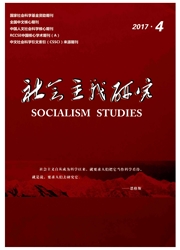

 中文摘要:
中文摘要:
在国家政权建设理论分析框架内,二十世纪以来,国家与农村社会精英的关系出现了持续变迁。清末民国时期,在权力渗透、资源汲取和现代乡村建设中,国家选择与权绅(即营利性经纪人)和专业知识分子等合作;新中国成立后的前三十年,在建立严密控制农村社会的行政官僚体系、资源提取以及社会主义意识形态的强烈影响中,国家选择以贫下中农中的革命积极分子为骨干的新型精英作为国家的神经末梢来治理乡村社会;改革开放后,在“乡政村治”治理格局的建构和现实控制农村社会与吸纳农村资源的行政逻辑的矛盾中,乡镇根据对两者的理解不同,选择与不同的农村精英合伙治理乡村社会;后税费时期,在“社会主义新农村建设”中,国家选择“富人”来合作治理乡村。因此,二十世纪以来,国家总是根据基层政权建设的变化来选择与不同的农村精英合作治理农村社会。
 英文摘要:
英文摘要:
Within the theoretical framework of state regime construction, the relationship between the state and rural social elite has always experienced change since the twentieth century. In the late Qing Dynasty and the period of the Republic of China, the government selected the right member of gentry (namely profitmaking agent) and professional intellectual to cooperate in the power penetration, resource extraction and the construction of a modern county; In the first three decades after the founding of PRC, the government selected the country's new elite from poor peasant activists in the revolution as nerve endings of the state to govern rural society in establishing administrative bureaucracy system of closely controlling rural society, resource extraction, and strong influence of socialist ideology; After the reform and opening up, township selected various rural elite partnership for rural social governance, according to different understanding of the contradiction between the governance structure construction of the "Township Government Village Autonomy" and the administrative logic of controling rural society and absorbing rural resources; Post tax era, in the "new rural construction of socialism", the government selects "the rich" to co-manage the countryside. Therefore, since twentieth Century, the government has always chosen to cooperate with different rural elite, according to the change of grass-roots political power construction, to govern the rural society.
 同期刊论文项目
同期刊论文项目
 同项目期刊论文
同项目期刊论文
 期刊信息
期刊信息
